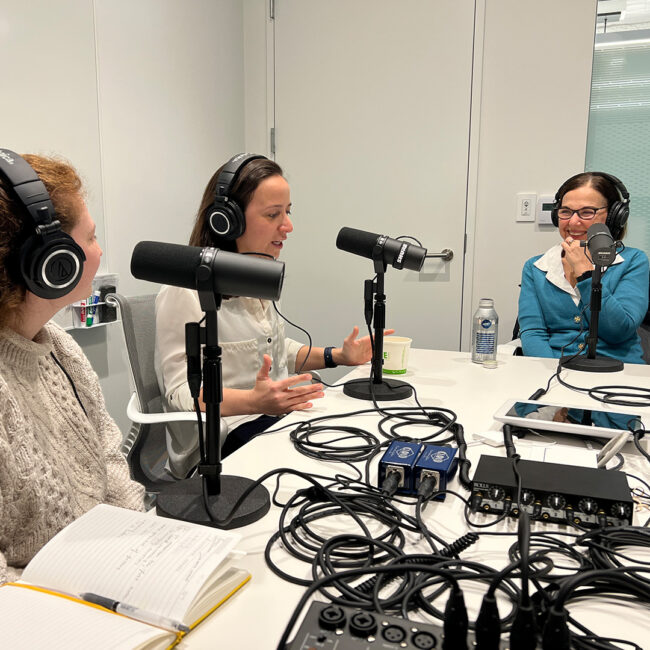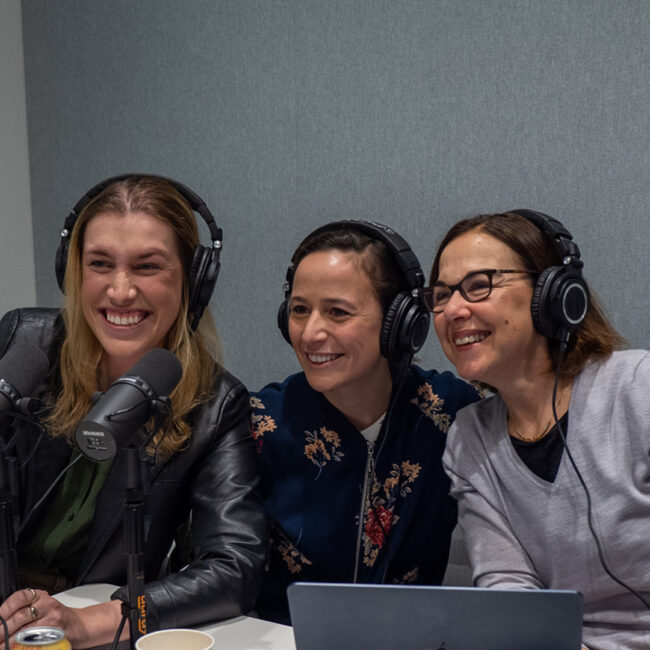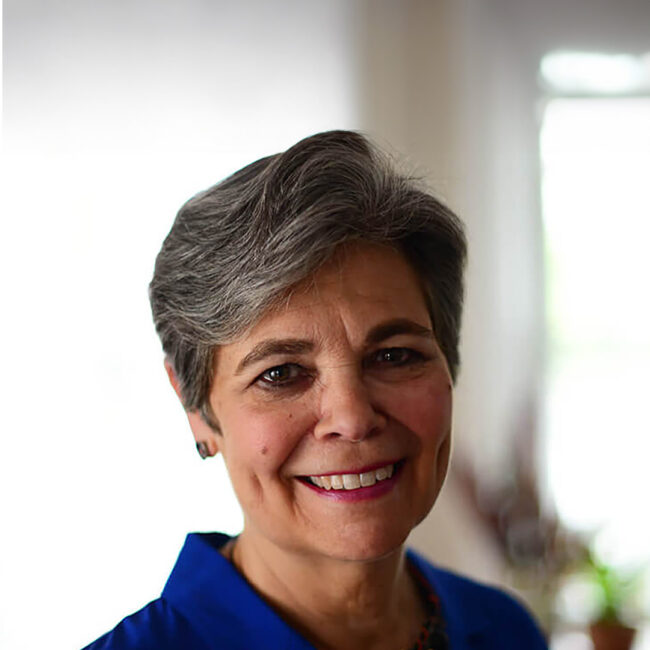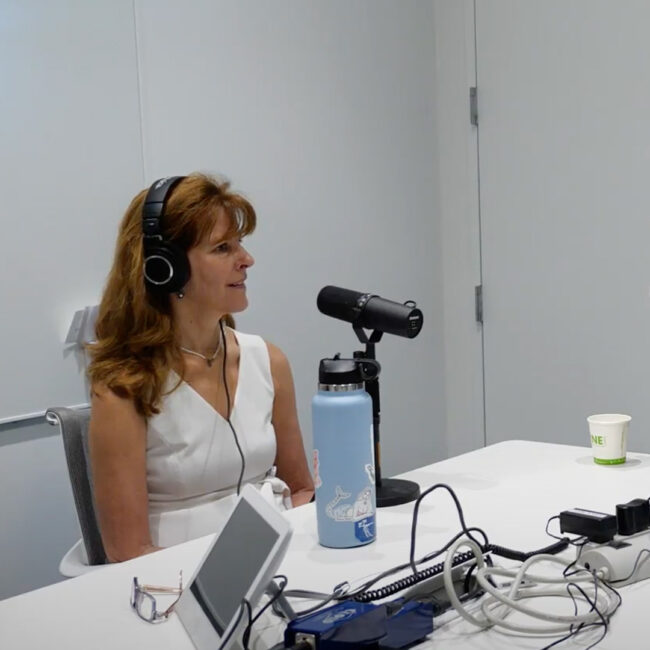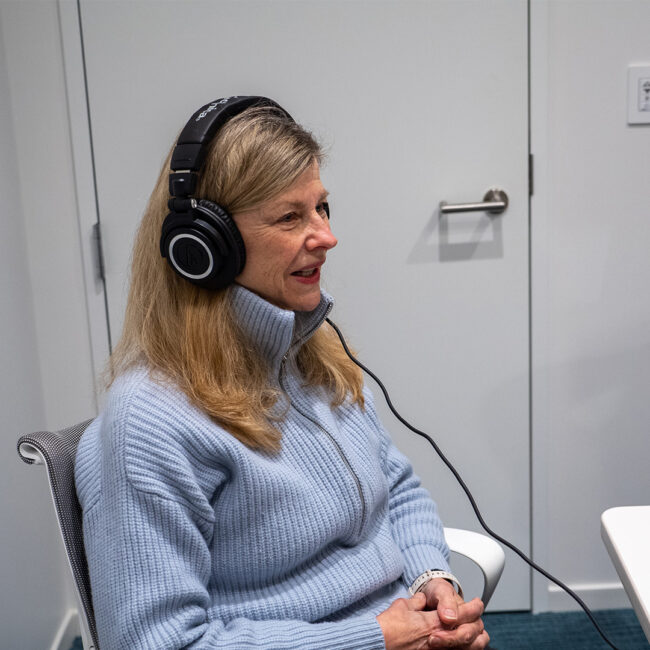
When your Child has Cancer: A Conversation with Dawn Billman
Episode Transcript:
Natasha Steele:
Welcome to Health After Cancer, a podcast for and by cancer survivors. I'm your host, Natasha Steele. I'm joined in the studio by my co-host, Lidia Schapira and Elle Billman. I am really excited about our guest today and hearing her perspective. Dawn McCurdy Billman is an active member of several hospital family-centered advisory councils, and she works in the genetics department at Stanford School of Medicine. But on our team, Dawn is best known as Elle's mom.
Dawn, as a mother of a three-year-old myself, I have to say I am frequently thinking about you and your experience of parenting Elle when she was diagnosed at age three. I can only imagine what this was like, and I'm so grateful to you for being here today to share it with us. Dawn, take us back to the beginning of Elle's cancer story. Where does it begin?
Dawn Billman:
Our story begins when Elle was three years old. And I had just had her sister three months prior to Elle's diagnosis, so I was quite busy. We have an older daughter as well, so a family with three children all under the age of five that required attention.
And I realized the day before Thanksgiving when Elle had a reoccurring ear infection that this was not normal, that normally you take a dose of antibiotics and the child gets better. And it was about my third go round of her having this ear infection and sleeping a great deal, so realizing it was the day before Thanksgiving and the world would stop for four days, I went to our pediatrician's office, just walked in with holding her in my arms, and said, "Something is not right. I know you don't have an open schedule, but I really need someone to see her." And the doctor took a look and immediately sent me to the hospital for a chest x-ray and a blood draw. And in a few hours, I was getting a phone call saying, "Please come back with clothes. I think Elle's going to have to spend the night. Do not bring your newborn daughter." Off we went, and our story began the day before Thanksgiving.
Natasha Steele:
I can't really imagine, having a two and a half year old daughter myself, how terrifying that is because it's one thing when a disease is happening to you or to your body, and yes, you don't have control, but it's contained. And when it's happening to your kid, as a parent of three, I just really can't imagine that feeling.
Dawn Billman:
The feeling I had was I wanted to run away. I remember saying, "Let's have a glass of wine, and maybe there's a way you can just escape." And finally I went, "No, got a deal."
Natasha Steele:
How long did that process take you, from saying, I need to face this?
Dawn Billman:
About a day because we were back in the hospital the very next day for tests. And the diagnosis was very clear, that we had a battle to fight. And my motto was, stay strong, be strong. You're a fighter.
Elle Billman:
Thank you for sharing that, mom. I can only imagine how hard it was. And hopefully it makes you feel better knowing that I don't remember any of it. And I really do think it has given me a mission now that I can act on and in my career as a physician.
Natasha Steele:
Can you talk a bit about how your role in Elle's life as advocate, as caregiver, as the holder of information evolved as Elle grew up?
Dawn Billman:
Yes. The one thing I must say is even while the battle... The treatment protocol for a lot of blood cancers is two and a half to three years, which was our journey. And during that process, you have to be an advocate. Like any child that changes so much from under the age of six, it's the same if your child has cancer. Not only are they dealing with all the effects of the chemotherapy and the medicine, but they're also growing and developing as a child would. I think that's important to keep in mind and realize that they want to have a normal life. And it's really important as a caregiver that you do everything you can to keep their life normal.
Lidia Schapira:
Can you think of an example, for instance, where life was normal even while Elle was in treatment? Perhaps a birthday party or some family event. And can you describe that for us?
Dawn Billman:
I sure can. It's very important that these children are able to have play dates and see their friends. My oldest daughter's birthday, she turned five or six right before Elle was released from the hospital. I was very creative in the type of birthday party I would have so that Elle could attend and her friends, Sarah's friends could still be there as well. And I think it's really important as caregivers that we keep all of that in mind.
Elle was in the hospital during the Christmas holiday, and it was super important that she had gifts just like any other child would have, that all of these major milestones continued to be celebrated, such as learning to ride a bike. And when Elle was in the hospital, she received a bicycle that she was able to ride through the hospital because she had been there for almost 60 days. She was so weak from not walking that we needed, at this point, to find a way that was creative that would make it fun for her to get some exercise, so a bicycle with training wheels was what she would do down the hospital corridor.
Elle Billman:
I also do remember trying to ride on the IV poles. I thought that was fun.
Dawn Billman:
Yes. And that was the other thing. My attitude was they're stuck in this hospital; keep their life as, once again, normal. when we would go to the cafeteria, I would pretend, oh, we're going to the bakery. Let's pick out a donut. Or the hospital gift shop became the store. And I'd be like, well, let's go see if they have anything new. Or what can we shop for?" Or the art on the walls of a hospital, we began a process of studying those. If there is a school in the hospital, I encourage parents of young children and teens to get involved with that school, trying to continue their studies. That's what I mean about keeping it normal.
Natasha Steele:
I think that's such an important point about creating normalcy around your kid and finding ways to keep things as, quote, unquote, "normal" as possible when they're in these extreme situations, like a hospitalization for two months and things like that. But at what point did you and your husband decide together to sit down with Elle and grapple with some of the things that weren't normal and talk to her about her diagnosis and talk to her about what she had undergone and the risks going forward?
Dawn Billman:
I have to say, I don't know that we've ever sat down with Elle and talked about the risks because she did so much of that research when she went away to college. And that was when I knew she was on her journey of sorting out her information. I do, one time though, recall Elle was about eight years old, and we were in the car, and I was driving her and her friend from school. And her friend remarked that one of his family members had been diagnosed with cancer. And I still can hear them talking in the back seat backseat, and Elle said, "Oh, I had that. I can never get that again."
Elle Billman:
And just to give you my side of that story of us driving in the car, I remember that too. And for some reason, I thought cancer was like the chicken pox and there's that once you get the chicken pox, you can't really get it again. That's why I said that. Obviously I've learned since that that's unfortunately not the case.
Lidia Schapira:
Can you talk a little bit about school, what it was like? Were there any difficulties? Was there any bullying at school of Elle or her sisters because she had cancer? Was the school receptive and a good partner to you in trying to maintain this normality around that?
Dawn Billman:
That is a very good question. School is a main part of any child's life. And for almost a year, Elle was not able to go to school because she was neutropenic and doing treatment or in the hospital. When she was able to go to her elementary school, she was bullied.
Elle Billman:
I don't remember that.
Dawn Billman:
You don't remember? For a while, Elle did not have much hair. Her face was kind of deformed from the Dexamethasone. And there was a young man who would bully her, and he beat her up. And I remember getting a call from the teacher really concerned that this young man had pinned Elle down on the playground. And for her it was not a big deal, but it was a tough thing.
Elle Billman:
And just to clarify, the young man was a boy. He was the same age as me.
Dawn Billman:
Yeah. He was six years old. Exactly. And didn't realize what he was doing. A lot of that happens with a lot of children. But it was a tough thing. The other thing that I think is important for caregivers and patients is to realize that because of all the medication you've taken, it could be delayed in terms of the side effects. And it doesn't happen to everyone, but sometimes it can happen. And being prepared to get the accommodations so that the student can overcome whatever they are dealing with and help them set up for success.
And that was something that I was not aware of until we dealt with it and one of the nurses said, "Get involved with our Health After Therapy program. Let's have you meet with that office and see if they can help you." I encourage anyone who is going through this while they're in school to reach out to your hospital and see if they have this resource available. It's an excellent resource. They can come to the school, talk to the teachers, explain to educators what kind of requirements and accommodations are necessary for the child to survive or the young adult to survive, whether it's high school or college. It's just a very important resource, and it can make the life so much easier for the parents, the caregivers, and the child.
Lidia Schapira:
Can you talk a little bit about what advice you received from the medical team and perhaps psychologists or social workers or child life specialists on the team about how to have these conversations with Elle as she grew, as she aged out of the pediatric group, became an adolescent and young adult? Or were you left to navigate those totally on your own?
Dawn Billman:
I have to say we had one resource that would happen called Health After Therapy. It went on for, oh, about five or six years after she was off treatment. The hospital lost their funding and that role went away. It was a very helpful resource, but other than that, we were left to sort it all out on our own.
Lidia Schapira:
Do you ever sit down with Elle and your other daughters and look at photos of that time and talk about what happened?
Dawn Billman:
We do look at pictures, but with Elle and her siblings, it definitely had an impact on their lives. And I think this is something that, as a group of survivors and families, that we have not focused on. Elle's oldest sister was five, a very key time in a life, and she saw me leave. I literally was living in the hospital for two solid months. We had a newborn. My family all lived on the east coast, so it was only my husband's parents that lived an hour and a half away that were able to come help us. The day Elle was diagnosed, she was sent to one of our neighbors. One of our neighbors said, "Oh, let me take her," because someone needed to look after Sarah. But that was really traumatic for her older sister to not have me be there.
Elle Billman:
And something that's unique for a child to cancer survivor is I feel like your cancer history is very much a shared story between the child and the primary caregiver because the child's a child and the primary caregiver is the one who's actually making all the decisions and remembers everything, whereas the child doesn't necessarily remember everything. And I think something that we maybe had a little tension on growing up was the disclosure conversations and when you were going to tell people about my cancer history and maybe I didn't want them to know. It did come up mostly I think in educational context, of letting the schools know so I could have access to the resources I needed. But I'm just curious to maybe we can have a conversation about how we could have done that better so the listeners can maybe learn from us.
Dawn Billman:
That is a very important topic, Elle. And I realize now, looking back, it's helpful for the child, especially as you get into high school, and the caregiver to sit down and have that conversation about how they would present this to an instructor because one of the aspects of that Health After Therapy or topics is to sit down with the educational people and explain to them what the child needs in terms of learning best. And many times, that does come down to this was our diagnosis. It's a very, very good point, what you just brought up. And there is a way to get that information across to the educators that the child can feel comfortable with or the teenager because they're going in and facing that classroom instructor every day.
Elle Billman:
Yeah, and then I think also just really thinking about beyond the educational context, if you're seeking accommodations, but outside of that, who do you get to tell and who do I get to tell? Because I think in some situations, it very much is your story too, but it's also mine. And so in our different worlds, we should be able to share it with who we want, but that doesn't mean I can go into your world and share it, necessarily, and you can come into mine and share it with whoever's in my world.
Dawn Billman:
Very good point. And I also found, as the caregiver, that once you took ownership of the story, then I felt like I was passing a torch or passing a responsibility that I had going through the process. Because as the caregiver, when you have a child in the hospital or even an adult or a young person, if they are so ill they can't talk, there are times when you are the voice of that patient to the care team. And I really believe that caregivers know their person that they're looking after better, many times, than medical professionals who have just met this child.
There were times during Elle's care in the hospital when she had several complications. Because I knew her so well and had been part of all of the scans and looked at all the photos, I was able to understand what they were trying to do and where the infection was. Was it in her brain? Was it in her stomach? And I knew from the way she was communicating with me that she was starving and she needed to be able to have food. And to be able to share that with the care team, speaking up for that patient is really important. But during that process, I felt like I was the one that wasn't able to eat. And you really do begin to and internalize all that they're going through.
Elle Billman:
Yeah. But then that changes in survivorship and as the child grows to an adolescent and then to a young adult. And so it can take some work and probably conversations to reframe that.
Dawn Billman:
Exactly. I totally agree.
Elle Billman:
I often think about why I'm going into medicine. And I have to recognize that I think growing up around medicine and navigating survivorship and getting really interested in research is probably a big factor that's pushed me into medicine. I'd like to think in another life where none of my cancer history existed, I would still go into medicine because I think it's such a cool field, but I do have to admit that my experiences have pushed me in a certain career trajectory. And that's something that I feel a lot of gratitude for because I think it gives me a purpose and a really meaningful purpose. Mom, I'm curious to hear if you think my cancer experience has influenced my siblings and the paths that they're on, and if that's been in a positive way for them too.
Dawn Billman:
That's a very good question, Elle. And just to add to that, there was a time when I was very surprised when you told me you wanted to go into medicine because when you were in your teens, you didn't enjoy going to doctors, so I always felt like there was an aspect of what you had been through that you were trying to forget. And so when you came to me and started to share that you were interested in medicine, I was surprised but happy.
And it has impacted our family. Our oldest daughter is getting her master's in counseling, mental health counseling, so it definitely impacted her. And her youngest daughter just received her degree in public health and is looking at which aspect of care she will go into, once again thinking she'll become a physician's assistant, so it's a part of her life as well. It's impacted the journey that I later took on my career. I now work in medicine and research and getting the scientific discoveries out to the world so that we can continue to use what we learn to develop more cures.
Elle Billman:
I've shared that a defining part of my survivorship journey was when I was a junior in high school and I was learning about frequency and pitch in my physics class, and my class took a hearing test together. I think you read about this specific story in an article I wrote, but I don't know if we've ever actually talked about it, but do you remember what I'm referring to?
Dawn Billman:
I do. I do recall, and I do recall you sharing it with me.
Elle Billman:
Okay, that's good. I don't remember that, but I'm glad I did. I also talk about how in that moment I became very curious about my cancer history and recognized that it was something I needed to be aware of so I could responsibly manage my health in the future. My attempt at gathering the information I wanted was to not ask you or dad, which would've been the easiest way. But being a 16, 17 year old, I didn't really want to bring up my cancer history with either you or dad so I took a different route and tried to research everything on my own. I think another big factor that contributed to that is I recognize that for you, talking about my cancer history sometimes made you emotional, which is very valid. And that was something that I wanted to avoid, so that also pushed me to figure it out on my own.
Also, in high school, you of course know that I was dealing with some late effects that I was receiving medical care for. And as we've talked about, I was very resistant to those appointments. I think all of my teenage angst came out at those doctor's appointments because I just did not want to be there. I'm trying to think about what we could have done to make that better. I'm curious if you have any ideas. I have some ideas, but I don't know how practical they would've been.
Dawn Billman:
What I recall about that process was that the doctor actually would talk to you in those appointments and not me. And I appreciated that because I felt like it was making you address the questions, the issues. And I do recall you asking really good questions of the doctors. And that's the way we learn is by asking questions. The other thing that I recall was so helpful was when you were able to jump on your bicycle and ride to the clinic for your appointment on your own.
Elle Billman:
Okay. I don't remember that. I actually-
Dawn Billman:
Freshman year.
Elle Billman:
Okay. That's funny you say that because I remember wishing I could have gone to those appointments alone. I remember wishing or thinking that I would've felt a little bit more comfortable if I could have just been in the office with the physician by myself. It's interesting that you remember me going to them alone.
Dawn Billman:
Yeah. It was your freshman year of college and you were able to ride your bike.
Elle Billman:
Got it, got it. But I think-
Dawn Billman:
Because I would ask if you needed help. Did you need a ride?
Elle Billman:
Got it. Got it.
Dawn Billman:
And you were like, "No, I can do it."
Elle Billman:
I think by that point, and maybe it was by me going off to college, we had been able to more formally pass the baton, so to speak. But up to that point, we hadn't, and so that's why we were still going to the appointments together.
Dawn Billman:
Exactly. Because you were so busy, you needed someone to drive you there, but when you were able to live close enough to the clinic, you didn't even need me to drive you there.
Lidia Schapira:
Is there something you would like to ask your daughter in this room with the world listening?
Dawn Billman:
Elle, what advice would you have for a parent who has a child going on a similar journey that you're going on? What do you feel a parent needs to provide to their... or a caregiver provide to the person that's going through treatment?
Elle Billman:
I think a challenge of being a cancer survivor and disclosing that to people is you're often met with some type of sympathy or pity. And that's always been something that prevents me from sharing my cancer history because I don't want people to treat me differently or view me in a different way. And so I think between a cancer survivor and their parent, if they can just talk about cancer in a very casual way that doesn't require a lot of emotion, because the cancer survivor is already meeting other people where they're at and already having to overcome the emotional response that other people have. And so if the caregiver and the cancer survivor can talk about cancer in a more casual way, I think it will make it a much easier conversation for them to have.
Natasha Steele:
Dawn, it's been such a pleasure to get to know and to have you share your story and Elle's story as part of this podcast. And I hope that so many people benefit from all of the hard-earned wisdom that you've shared with us.
Dawn Billman:
Thank you, Natasha, for taking time to listen and try to make a difference in the lives of other patients and their families.
Elle Billman:
Thanks, mom.
Dawn Billman:
Of course.
Elle Billman:
If you enjoyed listening to us today, please rate, follow and subscribe to Health After Cancer wherever you listen to your podcasts.
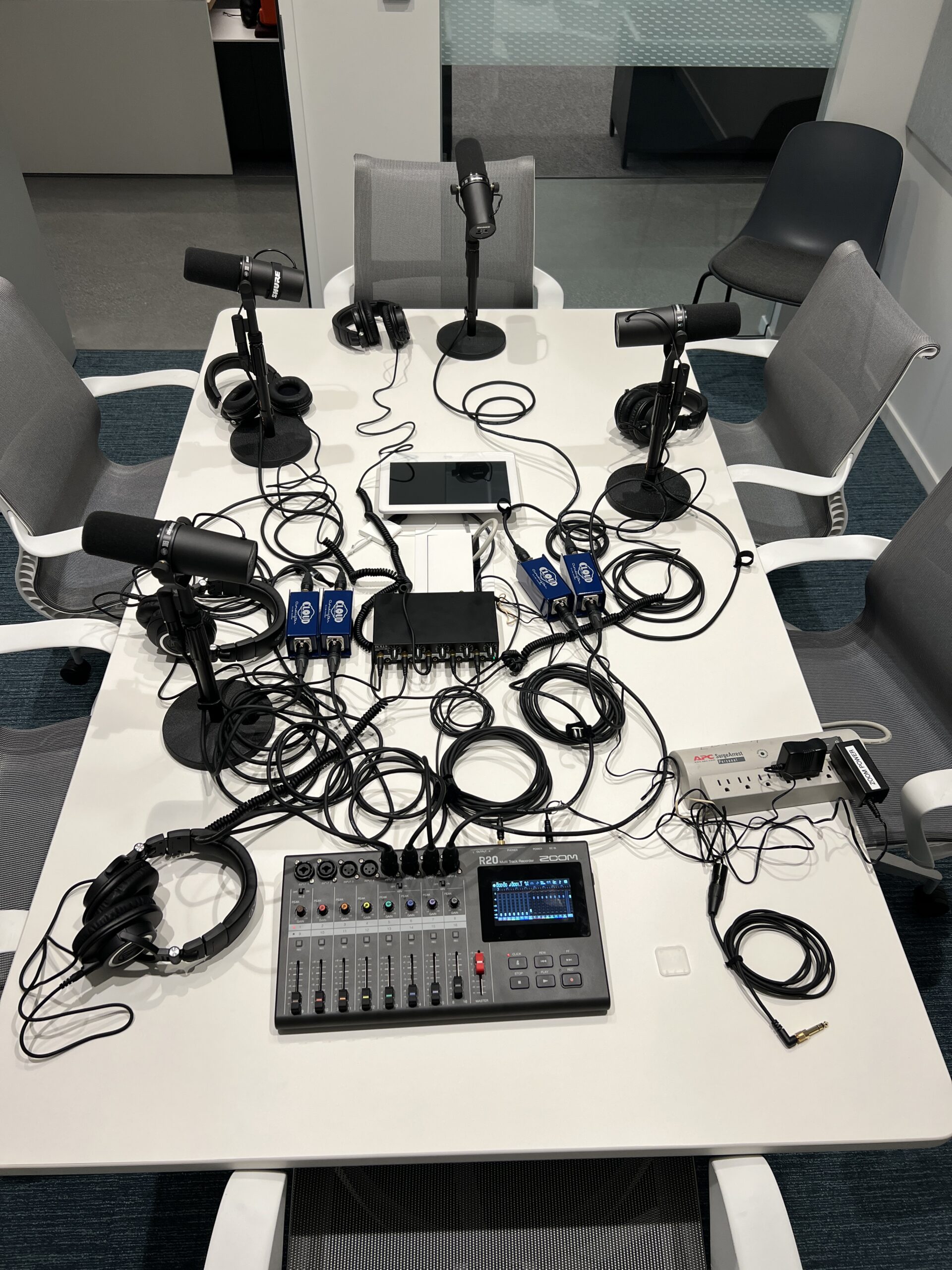
Meet your hosts:
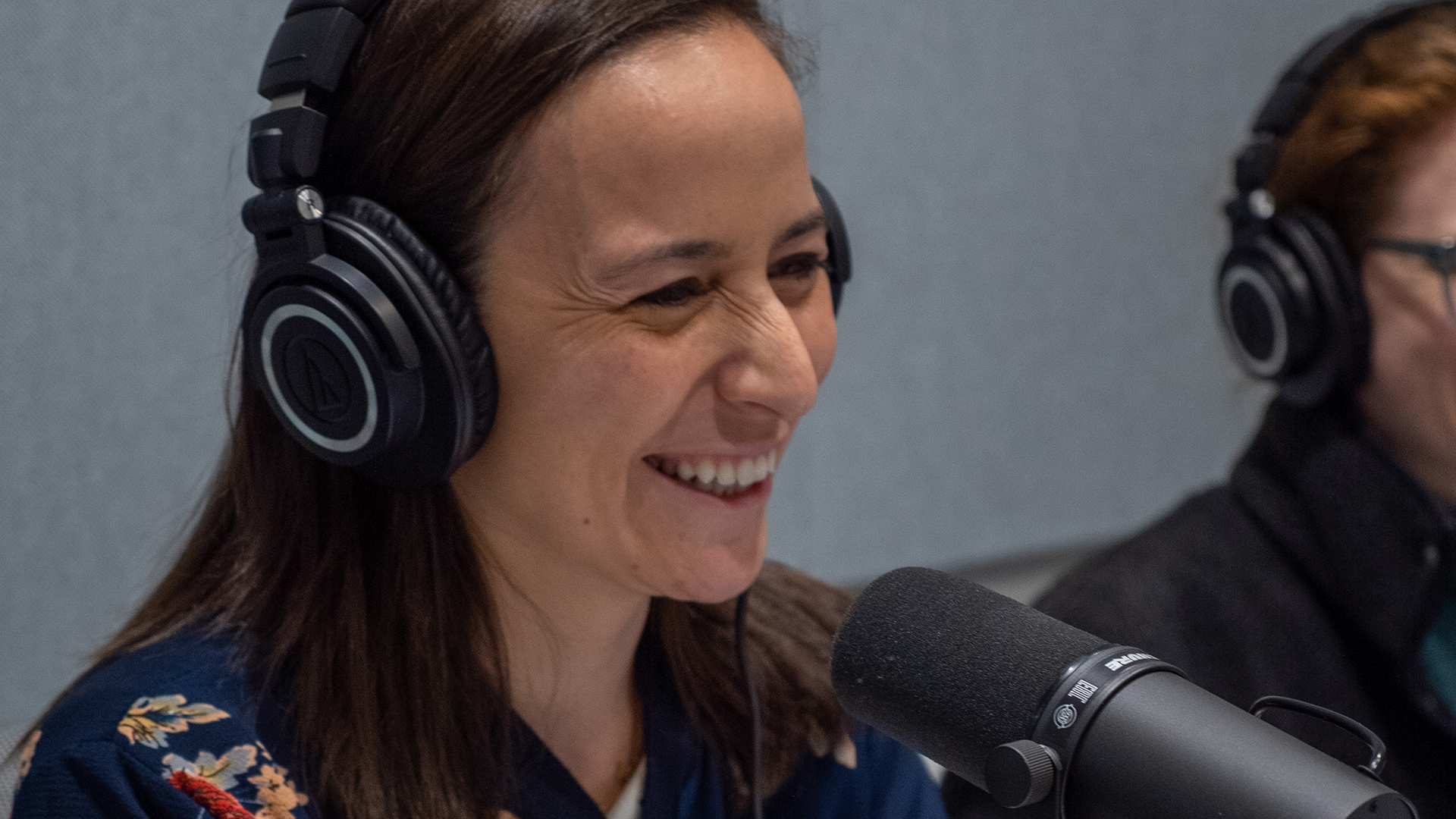
Natasha Steele
Natasha is a young adult cancer survivor, an internist and researcher, and an incoming faculty member at Stanford Medicine.
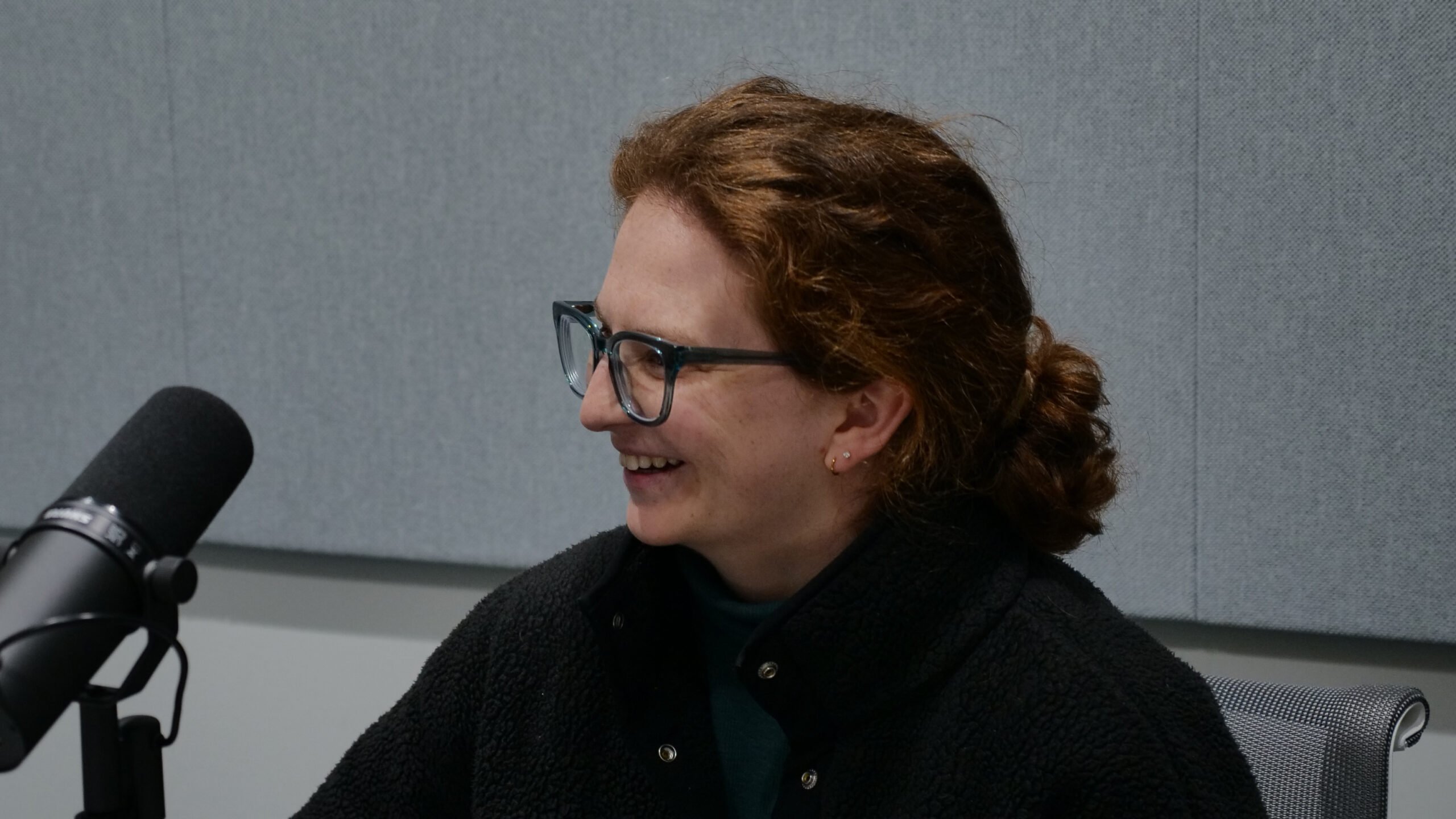
Elle Billman
Elle is a childhood cancer survivor and 2028 MD candidate at the Ichan Medical School, at Mt. Sinai, in New York.
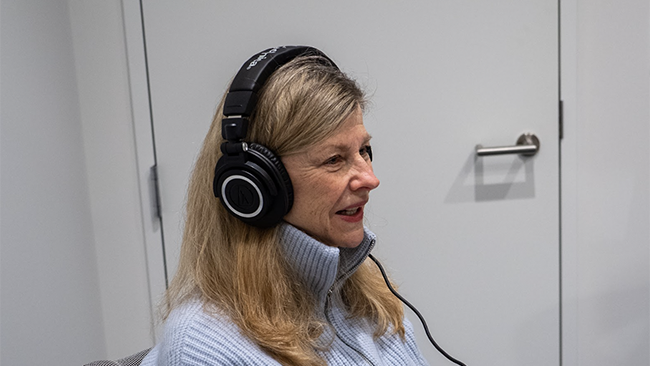
Dawn Billman
Dawn Macurdy Billman serves on several Lucile Packard Children's Hospital family centered advisory councils and works at the Stanford School of Medicine in the Genetics Department. She is an experienced patient advocate and mother of a cancer survivor.


